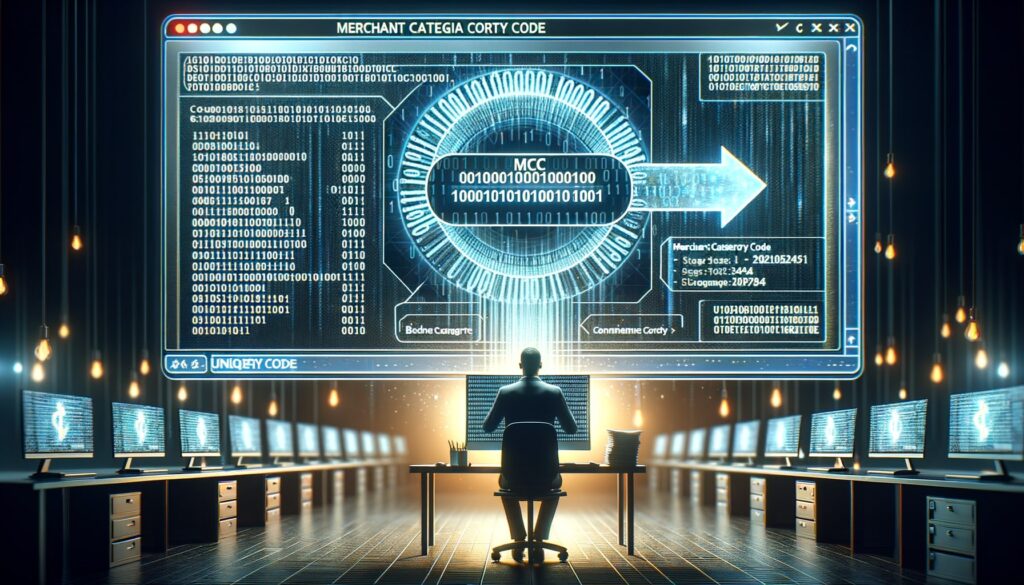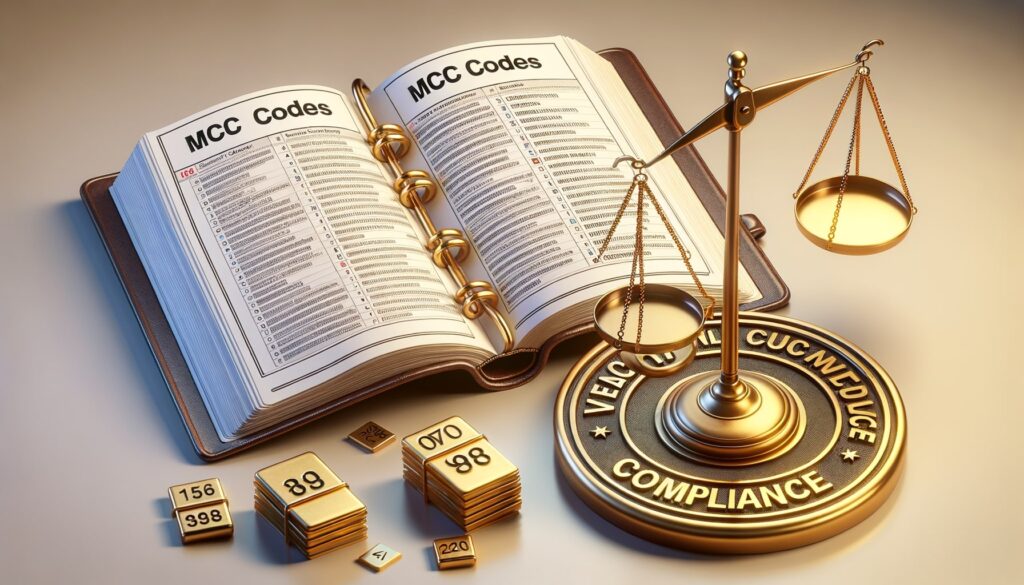
By American October 17, 2024
Merchant Category Codes (MCC) are essential identifiers in the payment processing ecosystem, as they help classify businesses based on the types of goods or services they provide. For business owners, understanding MCC codes is vital because these codes impact various aspects of their operations, from tax reporting to interchange fees. By familiarizing yourself with how MCC codes work and how they apply to your business, you can better navigate the complexities of payment processing and potentially reduce costs.
This comprehensive guide will cover everything you need to know about MCC codes, including what they are, how they are assigned, their significance for different business types, and the implications for payment processing fees. We will also explore how MCC codes affect taxation, legal compliance, and rewards programs, and provide a detailed FAQ section to address common questions.
What Are MCC Codes?
MCC codes are four-digit numerical codes assigned to businesses by credit card networks (such as Visa, Mastercard, and American Express) to categorize the type of goods or services a business offers. These codes help identify the nature of the business and are used by card networks, banks, and payment processors to determine the appropriate transaction fees, rewards programs, and other benefits for merchants and cardholders.
Each business is assigned a specific MCC code based on its primary activity. For example, a grocery store might be assigned an MCC code that represents “Grocery Stores” (5411), while a hotel may receive a code representing “Hotels and Motels” (7011).
Purpose of MCC Codes
MCC codes serve multiple purposes in the payment processing ecosystem, including:
- Interchange Fee Determination: Different MCC codes are associated with varying levels of risk, which impacts the interchange fees merchants pay for credit card transactions. Businesses in low-risk industries, such as grocery stores, typically pay lower interchange fees than high-risk businesses, such as travel or gambling.
- Tax Reporting: MCC codes are also used for tax reporting purposes. Some transactions, such as those related to charitable organizations or certain business expenses, may qualify for tax deductions or exemptions based on the MCC code.
- Cardholder Rewards: Credit card rewards programs often use MCC codes to determine the types of purchases that qualify for rewards. For example, some cards offer higher cashback or points for purchases at gas stations, grocery stores, or restaurants, based on the MCC code.
- Legal and Regulatory Compliance: MCC codes help card networks and financial institutions ensure that businesses comply with relevant laws and regulations, such as those related to online gambling, tobacco sales, or adult entertainment.
How MCC Codes Are Assigned
Who Assigns MCC Codes?
MCC codes are assigned by the acquiring bank or payment processor when a business applies for a merchant account. The process of assigning an MCC code involves evaluating the primary business activities and selecting the most appropriate code that represents the type of goods or services the business provides.
While businesses cannot choose their own MCC code, they can work with their payment processor to ensure they are accurately classified. Incorrect classification can result in higher processing fees or complications with tax reporting, so it’s important to verify that your MCC code is accurate.
Criteria for Assigning MCC Codes
The assignment of an MCC code is based on the primary products or services a business offers. In some cases, businesses that offer multiple services may receive a code that represents the most dominant or high-risk activity. For example, a hotel that offers accommodations, restaurant services, and retail products will likely be assigned the MCC code for hotels, even though it engages in various types of business.
Some common criteria used to determine MCC codes include:
- Industry Type: The industry or sector in which the business operates (e.g., retail, healthcare, hospitality).
- Primary Activity: The main products or services offered by the business.
- Business Model: Whether the business operates online, in-person, or both.
- Risk Profile: The perceived risk associated with the type of business, which can affect transaction fees and compliance requirements.
Can Businesses Have Multiple MCC Codes?
In most cases, businesses are assigned a single MCC code that reflects their primary activity. However, businesses that operate in multiple industries or offer a wide range of products and services may have different MCC codes for different types of transactions. For example, a large department store may have separate MCC codes for in-store retail transactions, restaurant services, and online sales.
Payment processors can sometimes assign multiple MCC codes to the same business if they process a significant volume of transactions across different business lines. This can help ensure that the business is charged the appropriate interchange fees for each type of transaction.
Importance of MCC Codes for Businesses
Impact on Interchange Fees
One of the most significant ways MCC codes affect businesses is through interchange fees. These fees are charged to merchants by the card-issuing bank every time a customer makes a payment using a credit or debit card. Interchange fees vary based on the risk associated with the transaction, and MCC codes play a key role in determining that risk.
For example:
- Low-Risk Businesses: Grocery stores, gas stations, and other low-risk industries often benefit from lower interchange fees because they process large volumes of transactions with relatively low fraud risk.
- High-Risk Businesses: Travel agencies, gambling businesses, and online retailers typically face higher interchange fees because their transactions are more likely to result in chargebacks, fraud, or disputes.
By understanding how your business’s MCC code affects your interchange fees, you can work with your payment processor to optimize your fee structure and potentially reduce costs.
Tax Reporting and Compliance
MCC codes are also used by financial institutions and businesses to report certain types of transactions to the Internal Revenue Service (IRS) or other tax authorities. For example, businesses in industries that qualify for tax exemptions or deductions must be correctly classified under the appropriate MCC code to take advantage of these benefits.
Some examples of tax-related uses of MCC codes include:
- Nonprofit Organizations: Charitable organizations must be classified under an MCC code that reflects their tax-exempt status. This ensures that donations made using credit or debit cards are processed correctly for tax reporting purposes.
- Business Expense Reporting: Some business expenses, such as travel and dining, may be deductible for tax purposes. MCC codes help businesses and financial institutions categorize these expenses accurately, making it easier to track deductible transactions.
Credit Card Rewards and Loyalty Programs
MCC codes also play a role in determining how credit card rewards are calculated for cardholders. Many credit cards offer rewards such as points, cashback, or miles based on the types of purchases made. These rewards are often tied to specific merchant categories, which are identified by the MCC code.
For example:
- Cashback Cards: Some credit cards offer higher cashback percentages for purchases made at grocery stores, gas stations, or restaurants. The card issuer uses the MCC code to determine whether the transaction qualifies for the higher cashback rate.
- Travel Rewards Cards: Travel-focused credit cards may offer additional rewards for purchases made at airlines, hotels, or car rental agencies. The MCC code helps the card issuer categorize the transaction and apply the appropriate rewards.
Understanding your business’s MCC code can help you attract customers who use credit cards with rewards tied to your industry. For example, if your business is classified as a restaurant, you may appeal to customers who use cards that offer extra points or cashback for dining purchases.
Common MCC Codes by Industry
While there are thousands of MCC codes in use, certain industries have commonly used codes that are easily recognizable. Below are some of the most frequently assigned MCC codes for different industries:
Retail and E-Commerce
| MCC Code | Description |
|---|---|
| 5311 | Department Stores |
| 5411 | Grocery Stores |
| 5812 | Restaurants |
| 5999 | Miscellaneous Retail Stores |
| 5732 | Electronics Stores |
Travel and Hospitality
| MCC Code | Description |
|---|---|
| 7011 | Hotels and Motels |
| 4111 | Local and Suburban Transportation |
| 4722 | Travel Agencies |
| 3000-3299 | Airlines |
| 3501-3999 | Car Rentals |
Healthcare and Medical Services
| MCC Code | Description |
|---|---|
| 8011 | Doctors and Physicians |
| 8021 | Dentists and Orthodontists |
| 8041 | Chiropractors |
| 8099 | Health Practitioners |
| 5912 | Drug Stores and Pharmacies |
Entertainment and Recreation
| MCC Code | Description |
|---|---|
| 7832 | Motion Picture Theaters |
| 7996 | Amusement Parks |
| 7995 | Gambling Transactions |
| 7999 | Miscellaneous Amusement Services |
Professional Services
| MCC Code | Description |
|---|---|
| 7372 | Computer Programming Services |
| 7394 | Equipment and Appliance Leasing |
| 8220 | Colleges and Universities |
| 8999 | Professional Services (Other) |





